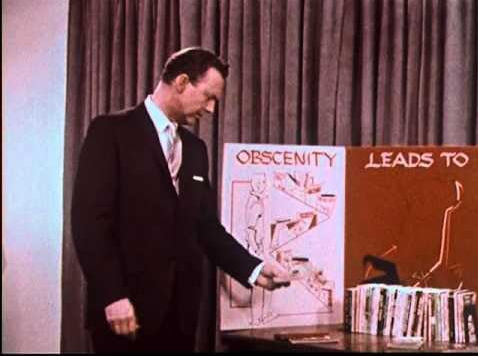
Strub, Whitney. 2011. Perversion for Profit : The Politics of Pornography and the Rise of the New Right. New York: Columbia University Press. Amazon
I’ve been reading Whitney Strub’s book, and despite its age, it is still very relevant in explaining the culture war over pornography in American politics. One of the things he details is though American history is littered with censorious firebrands like Anthony Comstock, those moral crusaders frequently stumbled over the problem that the majority of Americans don’t care very much about pornography as an issue. Men like Comstock and Charles Keating of Citizens for Decent Literature could mobilize a small, but vocal minority.
As Strub tells it, when the neoconservatives and the New Right rose to cultural power in the 1970s, they had to reconcile their belief in small government, free markets, and libertarianism with more culturally conservative allies, particularly evangelical Christians.
Thought it sought a socially conservative, generally religious voting base, the New Right was heavily corporate-sponsored, and such groups as the Committee for Survival of a Free Congress recognized the value of neocon thought in legitimizing their project of deregulating American markets even as they reregulated American morality.[Pg.190]
We’ve seen this strange-bedfellows alliance ever since, creating people who believe the Invisible Hand should rule everywhere except areas like pornography, abortion, and queer issues.
In 1979 the New Right organizer Paul Weyrich had come dangerously close to admitting the movement’s emphasis on social issues was a shallow commitment designed to garner evangelical votes while obscuring the substantive procorporate agenda of New Right politicians: “Yes, they’re emotional issues, but that’s better than talking about capital formation,” he said. Certainly the corporate benefactors of the New Right’s organizational superstructure valued profits over ideology; Coors, for instance, was headed by a reactionary zealot whose donations largely funded the important Heritage Foundation. But when the company recognized the consumer power of the gay market in 1979, it unhesitatingly ran ads in the gay paper the Advocate. [Pg.191-192]
More than 40 years later, we still see the same dynamic, even if the names have changed: trans people instead of gay people, puberty blockers instead of abortion, “cultural Marxism” instead of “the permissive society”. The 2023 brouhaha over trans streamer Dylan Mulvaney endorsing Bud Light suggests that the free-marketers sometimes back down when challenged by the cultural conservatives. Donald Trump himself embodies this contradictory political alliance: a man with multiple wives and a history of sexual indiscretions, who has been on the cover of Playboy magazine, can somehow be favored by the Christian right and even more reactionary forces. Grifters and quacks like Matt Walsh, Ben Shapiro, and Jordan Peterson constantly stoke culture wars over issues of sexuality and gender, anything to drown out considerations of economic policy from the discourse.
I’ve said it before, and I hope I’m wrong, but I still think it’s only a matter of time before BDSM takes the place of trans in this particular social-political complex.



